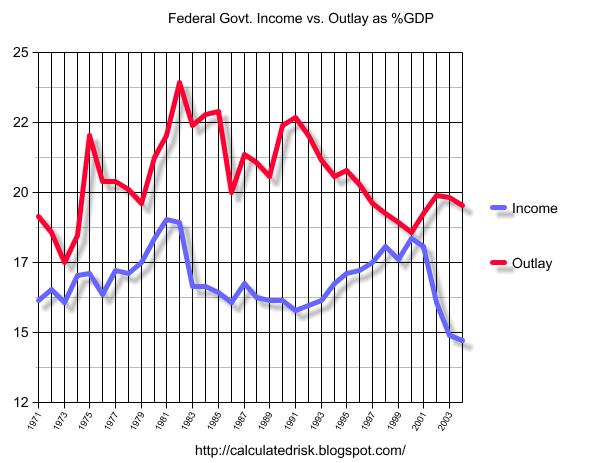The Rise of Conservatism Within the Second Republic
The provisional government was wildly disorganized. After roughly a month,
conservatives began to oppose the new government, using the rallying cry "order", which the new republic lacked. Popular uncertainty about the liberal foundations of the provisional government became apparent in the April elections, where, despite the agitation from the left, voters elected a constituent assembly which was primarily moderate and conservative.
As is often the case in revolutions, the 1848 revolution saw a major split between the Parisian citizens and those from the more rural areas. The majority of the French population resided in the countryside, seeing as, in 1848, most people were still tied to the land. However, the radicals in Paris were determined to keep the revolutionary movement alive by pressuring the government to head an international "crusade" for democracy, in which they promoted the independence of states, such as Poland, which had, at the time, been divided amongst and controlled by the foreign powers of Prussia, Russia, and Austria, and was also undergoing its own period of revolt (See
Wielkopolska Uprising).
The government set out to establish a stronger economy and provide social services. New
taxes were passed on the
landed class, peasants, and small farmers, with the taxes intended to pay for social services for the unemployed in the cities. The taxes were widely ignored, and the new government lost the support of rural France. Hard-working rural farmers did not want to pay for unemployed city people and their new "Right to Work," which ballooned the population of Paris with far more job seekers than there were jobs. Some jobs were provided, such as building roads and re-planting trees, but it was clear the demands of government were far more pressing than the revolutionaries had foreseen.
The need for organization was imminent. Evidence of this is in the victory of the "Party of Order". On June 21, 1848, led by ideology far more conservative than had initially created the provisional government, the dominant members of the French state closed the National Workshops. This enraged many of the artisans and workers of Paris. Between June 23rd and June 26th, in what came to be known as the "
June Days Uprising", the army executed a systematic assault against the revolutionary Parisian citizenry, targeting the blockaded areas of the city. Before, workers and
petite bourgeoisie had fought together, but now, lines were tighter. The working classes had been abandoned by the bourgeois politicians who founded the provisional government. This would prove fatal to the Second Republic, who, without the support of the working classes, could not continue.
The "Party of Order" moved quickly to consolidate the conservative nature of the revolution, appointing general and statesman
Eugene Cavaignac to the head of the French state. Later, on the 10th of December,
Louis-Napoleon was elected president of the French Republic.
Class Struggles within the Revolution
To the French elite, the June Days uprising was something of a
red scare.
Karl Marx saw the "June Days" uprising as strong evidence of class conflict. Marx saw the revolution as being directed by the desires of the middle-class. While the bourgeoisie agitated for "proper participation", the workers themselves had other concerns. Many of the participants in the 1848 Revolution were of the
petite bourgeoisie (the owners of small properties, merchants, shopkeepers, etc.), outnumbering the working classes (unskilled laborers working in mines, factories and stores, paid for their ability to perform manual labor and other work rather than their expertise) by about two to one. Therefore the provisional government, created to address the concerns of the liberal bourgeoisie, did not have enough of a foothold in the working classes. Support for the provisional government was especially weak in the countryside, where a vast amount of France's population was agricultural and traditionally less revolutionary. Though those in the countryside did have their own concerns, such as food shortages as a result of bad harvests, the concerns of the bourgeoisie were still too far-off from those of the lower classes. Also, the memory of the French Revolution was still fresh in the minds of the French. The
Thermidorian reaction and the ascent of
Napoleon I to the throne are evidence that the people preferred the safety of an able dictatorship to the uncertainty of revolution. Thus, one might argue, without the support of these large lower classes, the revolution of 1848 would not carry through, despite the hopes of the liberal bourgeoisie.
The End of the Revolution in France
Politics continued to tilt to the right, and the era of revolution in France came to an end.
Louis Napoleon's family name of
Napoleon rallied support, and after sweeping the
elections he returned to the old order, purging republicans and returning the "vile multitude" (Thiers) to its former place. By the
December 2, 1851 coup, he dissolved the National Assembly without having the constitutional right to do so, and became the sole ruler of France. Cells of resistance surfaced, but were put down, and the Second Republic was over. He reestablished universal suffrage, feared by the Republicans at the time who correctly expected the country-side to vote against the Republic, Louis Napoleon took the title Emperor Napoleon III, and the
Second Empire began.

